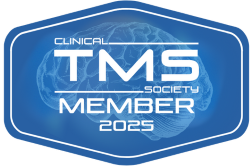
Since its approval in 2008 by the Food and Drug Administration (FDA) as an evidence-based therapeutic modality for patients with treatment-resistant depression, a number of misinterpretations, half-truths, and outright myths have developed about transcranial magnetic stimulation (TMS): collectively, we call these TMS myths.
Although TMS is determined safe by the National Institute of Health and has FDA-approval as an effective treatment for depression, OCD, and more, inaccurate information exists that may prevent people from seeking relief with this new, innovative treatment.
This article will highlight and dispel some of the most common TMS myths and other misunderstandings associated with transcranial magnetic stimulation (TMS).
Debunking Six Common TMS Myths
1. TMS Treatment is Not Covered by Insurance
Fact Check: False
TMS treatment is, in fact, covered by most major insurance companies. At Relief Mental Health, we verify coverage and review your insurance benefits before your treatment begins. We make sure you know the cost of treatment before starting.
In general, TMS is an affordable option. In addition, Relief Mental Health offers many different payment options, and can help patients find financing if needed.
2. TMS Treatment Shocks My Brain Like Electroconvulsive Therapy
Fact Check: False
It’s easy to confuse transcranial magnetic stimulation (TMS) with electroconvulsive therapy (ECT). Confusing the two is understandable, since both forms of treatment use electrical impulses and both forms of treatment help people with depression.
However, that’s where the similarities end.
While ECT uses an electrical current to stimulate the entire brain, TMS uses focused, targeted electromagnetic pulses to specific targeted areas of the brain to stimulate and strengthen your brain’s ability to relay the signals you need to regulate mood and behavior. Treatment is non-invasive, safe, and allows patients to return to normal daily activities after a session.
In addition to treatment-resistant depression, TMS is an effective treatment modality for obsessive-compulsive disorder (OCD), smoking cessation, anxious depression, and more.
3. TMS Treatment is Short-Acting
Fact Check: False
Clinical trials funded by the National Institute of Mental Health (NIMH) found that treatment with TMS is durable, which means the positive effects persist. In contrast to psychiatric medication, which stops working when a patient stops taking it, the symptom relief experienced by TMS patients does not stop after treatment. Multiple QEEG and PET scans of patients before and after TMS treatment show physical changes to their neurotransmitter, and numerous research studies confirm these physical changes in the brain are associated with the brain areas that control mood and emotion.
4. TMS Treatment is Time Consuming
Fact Check: False
While some TMS treatment centers take an hour per session, Relief Mental Health patients are typically in and out of the clinic in less than 30 minutes.
Our treatment team is dedicated to making TMS an option for even the busiest patients. We have multiple convenient locations and offer evening and weekend appointments. Since TMS is non-invasive, you can return to normal daily activities after a treatment session.
5. TMS is Not Safe and Has Many Adverse Side Effects
Fact Check: False
Clinical research confirms the safety of TMS. There is no evidence that TMS is unsafe. TMS therapy is well tolerated by most patients and has not shown evidence of severe or adverse reactions. Here’s a direct quote from a study on the safety of TMS:
“Overall, rTMS is a well-tolerated treatment with common side effects (such as headache or local pain at the site of stimulation) being mild. With adequate assessment and monitoring processes, rTMS can be administered safely in a large proportion of depressed patients.”
In addition to being safe in the short-term, there are no known long-term side effects of TMS treatment. The most common short-term side effect is temporary scalp discomfort near the site of treatment and the potential of a minor headache, as mentioned in the study quoted above. These typically resolve within the first week or two of treatment.
6. TMS Causes Personality Changes
Fact Check: False
TMS doesn’t change who you are. However, as depressive symptoms fade in frequency and intensity, patients may change in ways they welcome. They may notice increased energy levels, improved concentration and memory, a rekindled passion for old hobbies, and a general sense of peace and serenity. In most cases, patients with depression see these changes as positive, and are happy to return to life without the disruptive symptoms common to clinical depression.
TMS Treatment at Relief Mental Health
If you’ve received a diagnosis for depression, obsessive-compulsive disorder (OCD), or another treatment-resistant mental health diagnosis and your current treatment plan does not offer relief, we encourage you to reach out to Relief Mental Health today. With offices throughout Illinois, Wisconsin, and New Jersey, our medical team will design a personalized treatment plan that works for you and your schedule.
Contact Us
"*" indicates required fields

